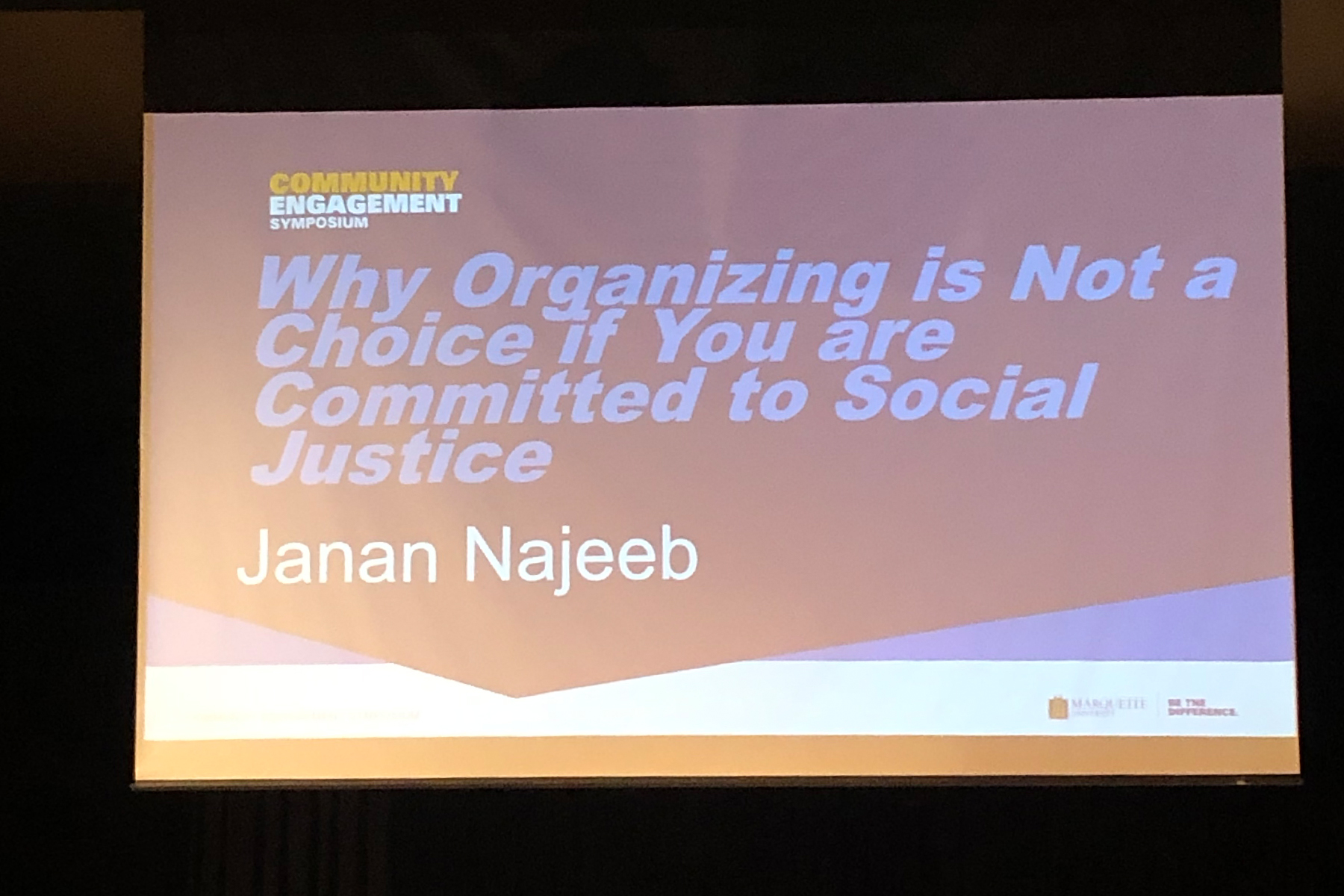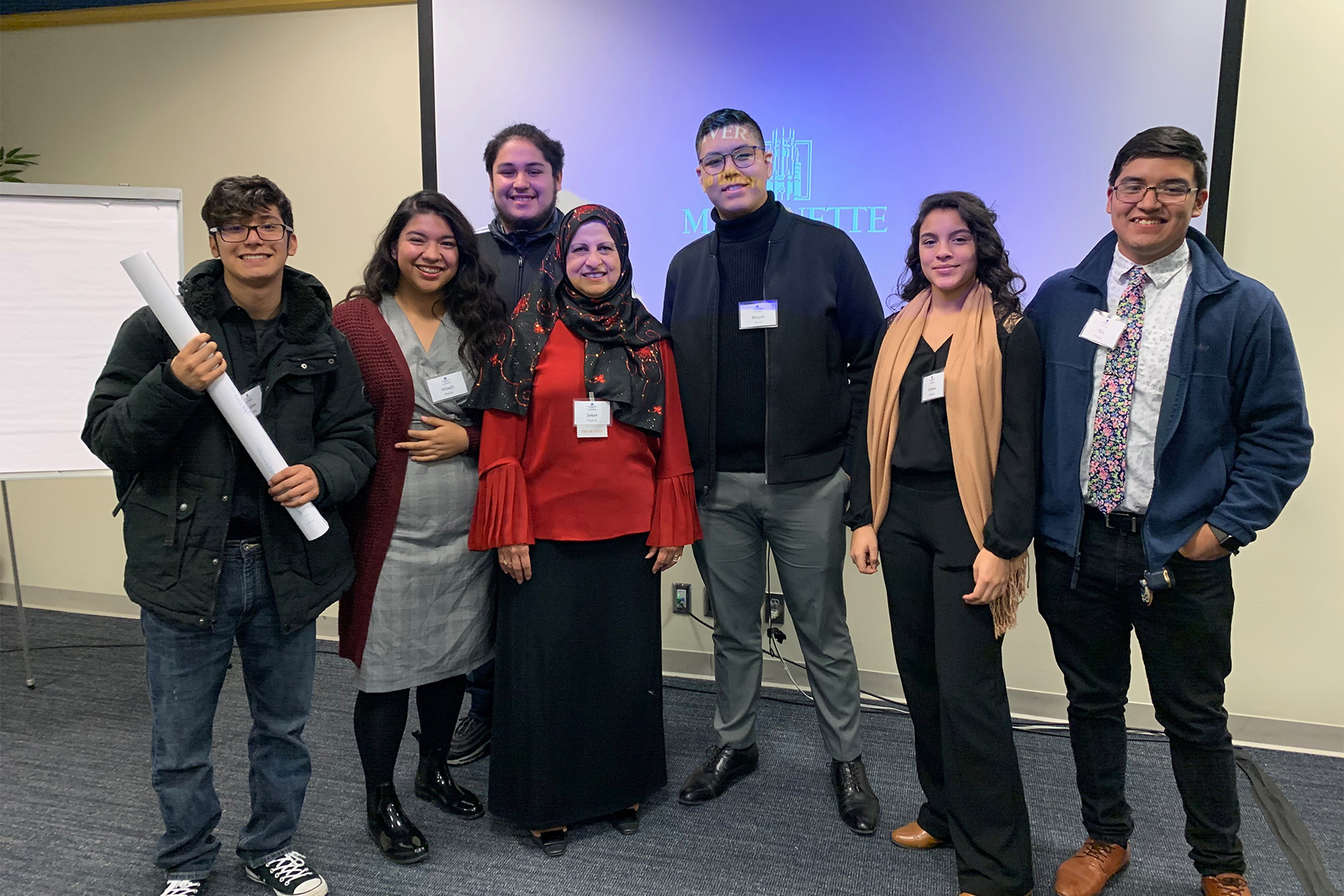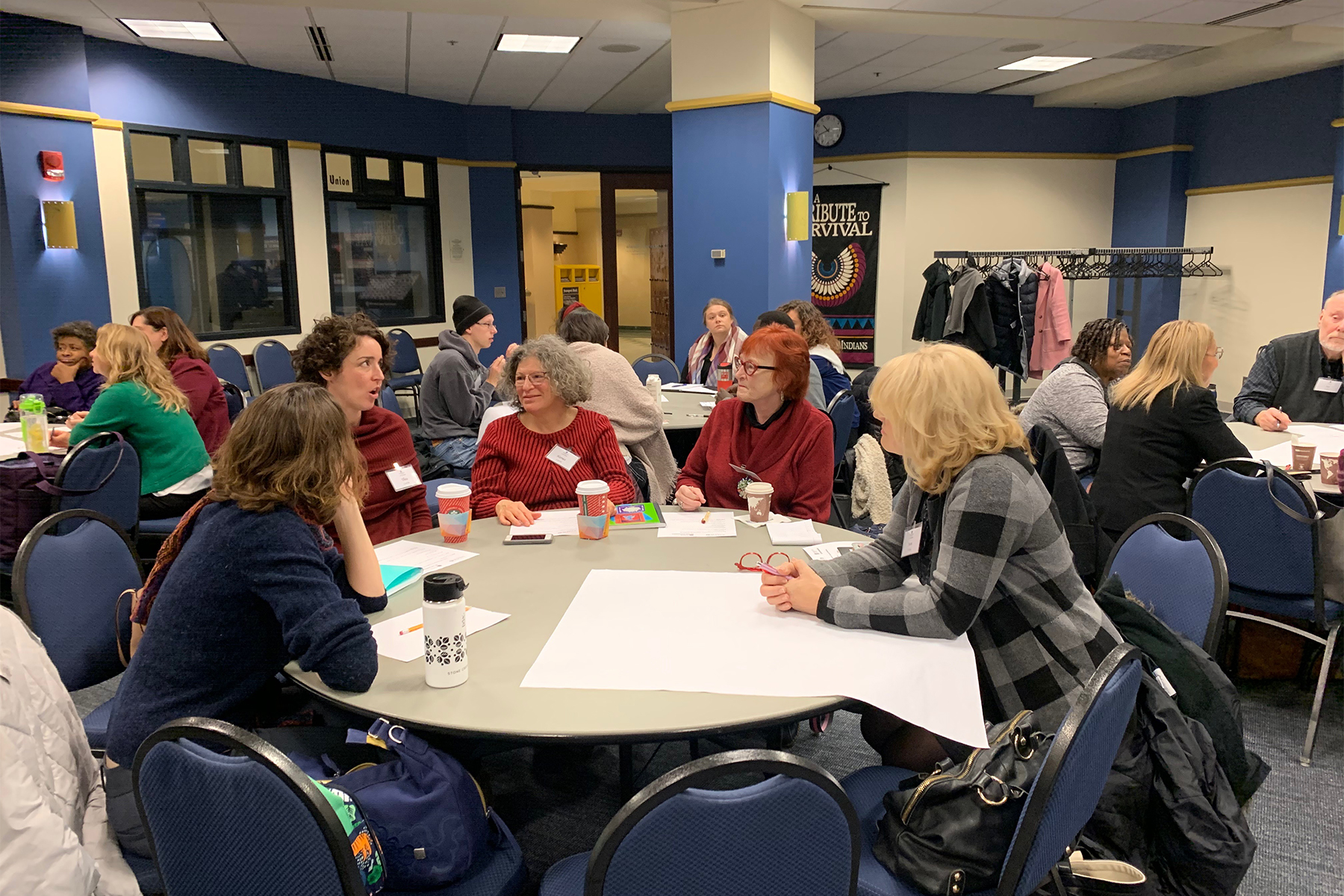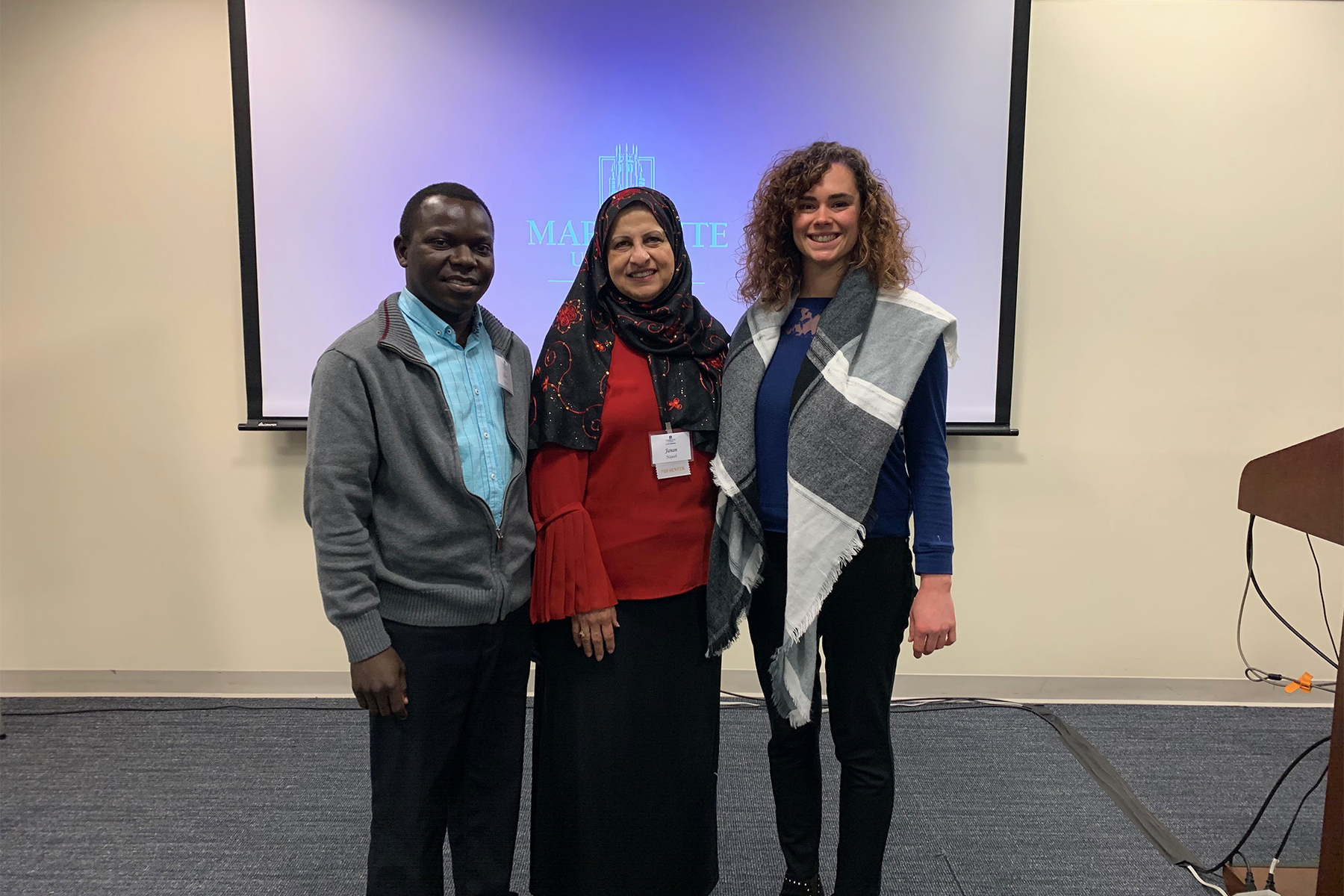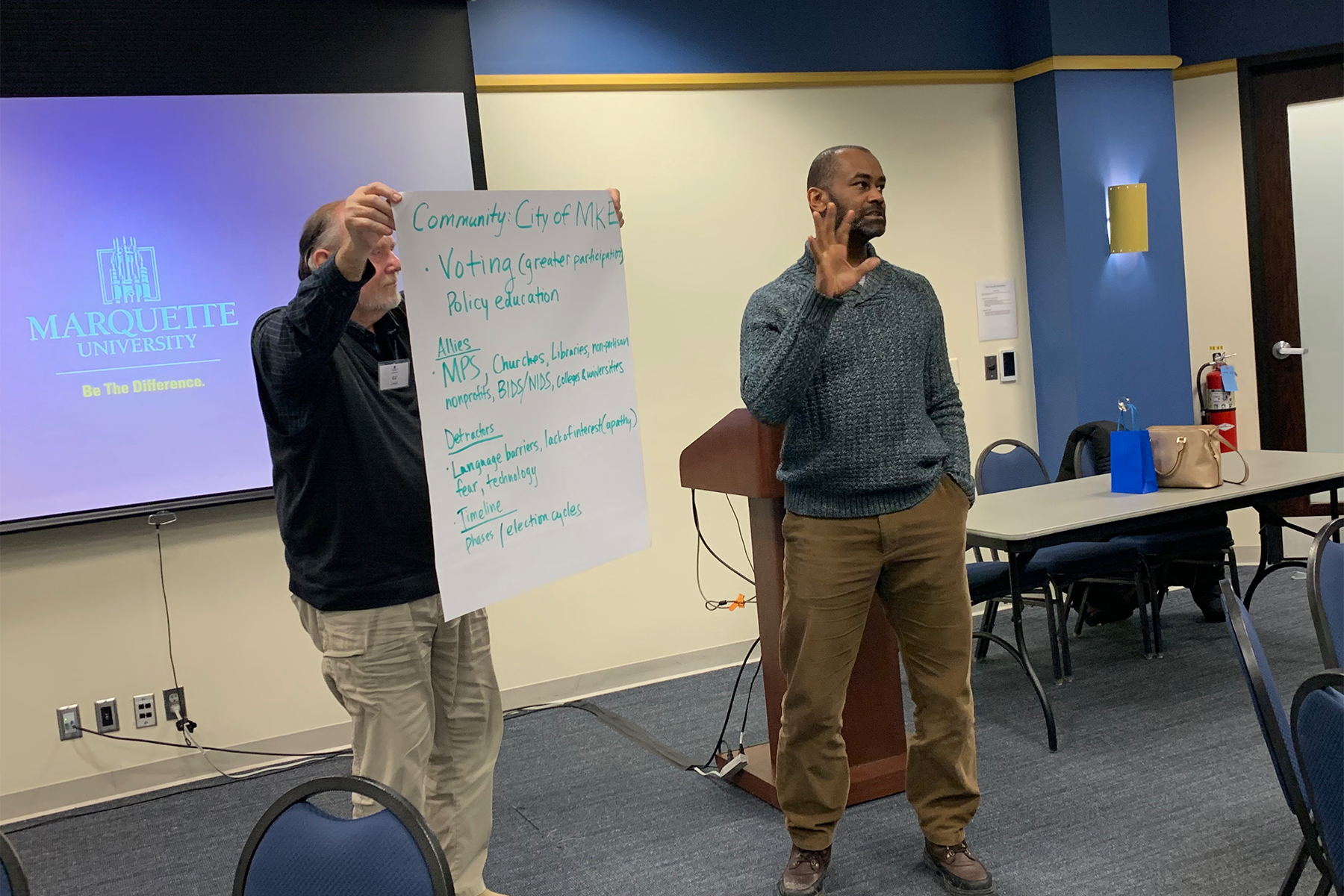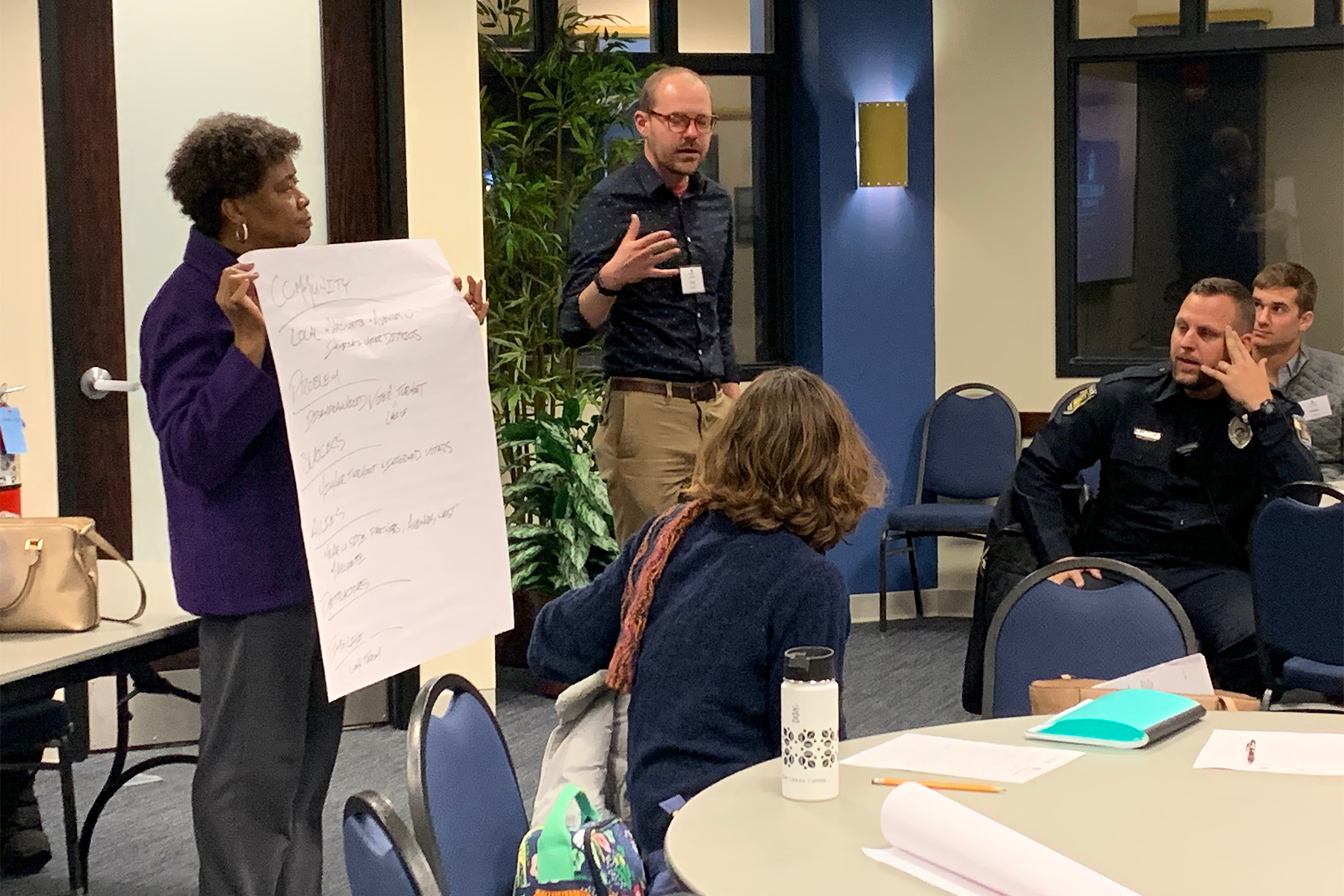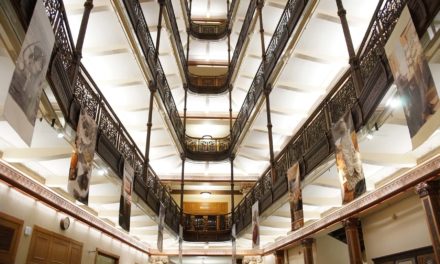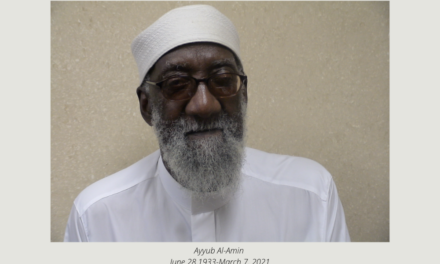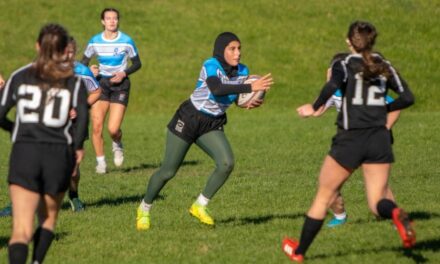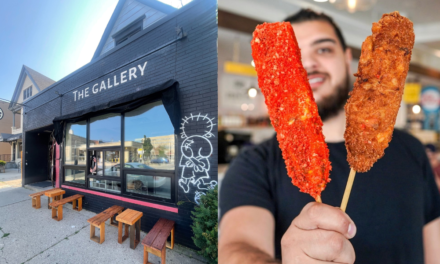On November 12, the Marquette University Office of Community Engagement sponsored the 2019 Community Engagement Symposium at the Alumni Memorial Union. A range of speakers gave 15-minute “Ted Talks,” followed by a series of workshops led by each speaker.
The speakers included Grady Crosby, Vice President of Public Affairs and Chief Diversity Officer for Johnson Controls and President, Johnson Controls Foundation; Annie McGinnity Kubes, Executive Director, The McGinnity Family Foundation; Naya Jones, PhD, Postdoctoral Fellow, Medical College of Wisconsin; Tracey Sparrow, EdD, President, Next Door Foundation; Shauntay Nelson, Wisconsin State Director – All Voting is Local, The Leadership Conference Education Fund.
The following article is based on Janan Najeeb’s talk, “Activism & Community Organizing.” Janan Najeeb is president of Milwaukee Muslim Women’s Coalition and publisher of the Wisconsin Muslim Journal.
Activism is the innate drive in the pursuit of social justice. People may have different reasoning, different ways of seeing the world, but moral outrage and personal urgency are common among all of us.
Moral outrage gave us voting rights. Moral outrage gave us civil rights. Moral outrage is what brought 80 year old grandmothers out to stand on street corners every week and protest the Iraq war, Moral outrage gave us the Women’s March. Moral outrage brought millions of people to spontaneously gather at airports to protest President Trump’s Muslim ban.
Congressman John Lewis is often called one of the most courageous people ever produced by the Civil Rights movement, and he said, “You cannot be at home with yourself unless you act.”
But did you ever wonder how it is that many people choose not to act when they see injustice, although they have the capacity to make a difference or at the very least lessen the harm being done?
The excuses are familiar to us. People choose to avoid conflict or unpleasant situations. Or they say, “This doesn’t affect me, let others deal with it.” They will give excuses such as, “I’m not a political person.” What does that even mean? Nobody is outside the sphere of influence of politics. We are all affected by it.
Or people will say, “I don’t have the time!” Or the money, the knowledge of the issue, the organizational skills.” In fact, we all lack something. But the choice to walk away is a sign of privilege! When your race or your wealth, your gender, your religion, or your abilities, give you the choice not to act when oppression or injustice takes place, if you are able to opt out of the work for social justice, know that that is privilege in action.
Opposing injustice requires sacrifice. But if you are a victim of xenophobia, deportation, ethnic cleansing, poverty, climate – whenever you are a victim of something that is not in your control, you do not have the luxury to opt out. And you will need allies.
Being an activist doesn’t mean that you are going to be perfect and know everything. Activists are simply doing everything in their power to make change. It doesn’t start with knowing every single thing about the issue or political power or money.
It starts within your heart. Martin Luther King, Jr. said, “Injustice anywhere is a threat to justice everywhere.” You just need to recognize it. Keep learning and truly believe in your cause. Be passionate about the issues you stand for.
Remember, you are not responsible for healing the ills of the world by yourself. Start with your sphere of influence: your extended family, your friends, the people you interact with. When you don’t let certain statements pass, you are being an activist. So when your crazy Uncle Bob says something racist at Thanksgiving dinner, don’t give him a pass. Others are listening.
I’m sure many of us have heard the story of the Syrian teen, a refugee, who was speaking Arabic on his phone on the trolley in San Francisco. He was beat up by a white supremacist and landed in the hospital. And he said the thing that disturbed him the most was that all of the people on the trolley watched and nobody did anything.
That incident demonstrates that, as so many activists have said, if you’re not part of the solution, you’re part pf the problem. For that Syrian teen, all the people on that trolley were confirming one person’s hate.
My parents were activists. My father came to the U.S. as a teen-ager and found camaraderie within the African-American community. He became active in the civil rights movement, and he always heard, “Don’t ask for your rights.” That’s what my parents taught me.
You don’t ask others for your rights. That implies that your rights are theirs to give. You demand that they stop denying you the rights that all people were given by God. Justice is equal for everyone. Rights are equal across the board.
Community organizing is mobilizing a group of people to address common issues and concerns and enabling them to take action. It focuses on collective action. Activism and organizing are not choices; they are necessary for social justice and real change.
In 1994, twenty professional women founded the Milwaukee Muslim Women’s Coalition to contradict the stereotypes about Muslim women that run rampant in western society. Our goal was to build bridges of understanding. We were always ready and willing to speak to one or a roomful.
We continued to build our organizational strength as we came across an issue that needed to be addressed. We opened up the Islamic Resource Center, a cultural center that hosts Wisconsin’s first Islamic lending library. There are very few books about Muslims, and most of the bestsellers are written by people who don’t like Muslims, filled with bigotry and stereotypes. So in 2011, the Islamic Resource Library, the only lending library in Wisconsin dedicated to providing resources on Islam and Muslims, has over 4000 books and media. We host book clubs, author talks, discussion groups, university classes and much more.
All of the images of Muslims on TV and in the movies are negative. So we started the Milwaukee Muslim Film Festival, one of only a few such festivals in the country. This past year, the Milwaukee Film Festival was a co-presenter.
But we continued to see a need for understanding and education. Nobody was writing what we wanted written about us. So we founded the Wisconsin Muslim Journal. Now thousands of people all over the world follow us.
When we learned that we were one of the only communities that did not have a culturally specific domestic violence program, we founded Our Peaceful Home, a program that is funded by the State of Wisconsin.
When the City of Milwaukee announced that it would host the Democratic National Convention in 2020, we realized that if we didn’t organize, we would be sidelined. We founded the Wisconsin Muslim Civic Alliance to register voters and help them engage with politics at the local as well as the national level prior to the critical 2020 election.
Margaret Mead said, “Never doubt that a small group of people can change the world.” Activism comes from within. Change doesn’t happen on a schedule. It’s a slow road, but a continuous road.
